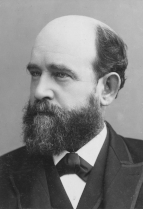Land Rents
September 10, 2014
This 2014 excerpt of PostMag, Spt 7, is by Larred Macfarlane. This article was first published in Scotland 44: Ideas for a New Nation.
People often joke that economists were created to make weather forecasters look good. Eighty four years, John Maynard Keynes in his The Economic Possibilities of Our Grandchildren predicted a life devoted to recreation and leisure. Didn’t happen, but in one regard Keynes was correct: the enormous productivity gains since the end of World War II have generated immense economic growth and caused an explosion in material wealth.
So why isn’t everyone enjoying the leisure economy that Keynes promised?
“Predistribution” is the idea that government should prevent gross inequalities from emerging in the first place, rather than establishing government bureaucracies to try and ameliorate inequalities once they have developed.
Rather than being based on the unfettered exploitation of people and environment, a “predistributive” economy would also be based on the careful and sustainable utilisation of our resources – both natural and human. Scotland is blessed with a wealth of natural resources; land, wind, tide, wave, water, forestry, fish and more. The stewardship of these natural resources matters immensely in shaping the social and environmental outcomes in society.
Being a free gift of nature, the economic value of these natural resources has nothing to do with anyone’s work, wisdom or labour. Accordingly, it is only logical that our natural commons should be utilised for public benefit, either through public ownership or as a source of public revenue. Recognising that the natural wealth of the land should be shared among the populace is not a new idea. The Anglo-American revolutionary Thomas Paine called this idea ‘Agrarian Justice’ – that was in 1797.
Our most precious natural resource is the one that we take most for granted: the land beneath our feet. By rebalancing the sources of public revenue from productive labour to unearned wealth accruing from landownership, the value of land can be utilised to benefit society as a whole.
In the words of Welsh novelist Raymond Williams: “to be truly radical is to make hope possible rather than despair convincing”. In the words of American polymath Buckminster Fuller, “You never change things by fighting the existing reality. To change something, build a new model that makes the existing model obsolete.”

